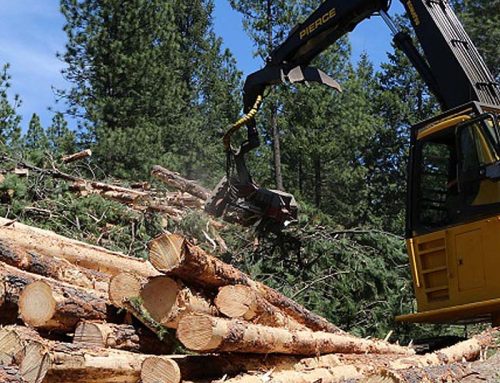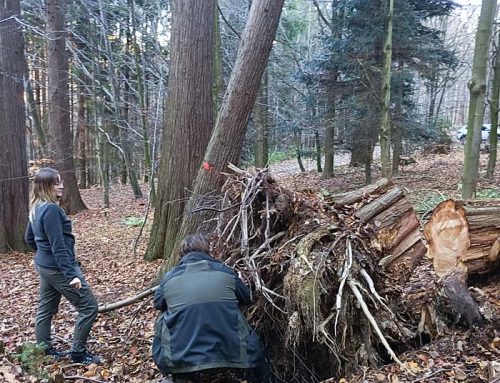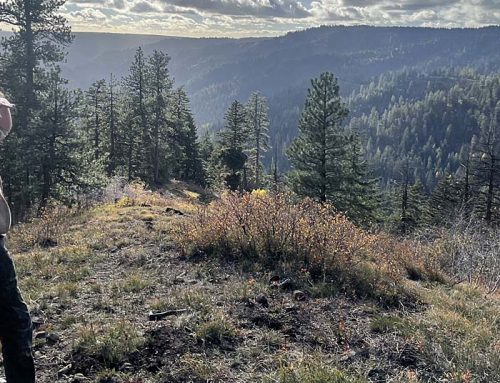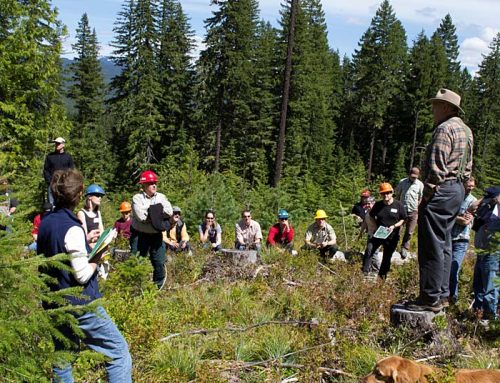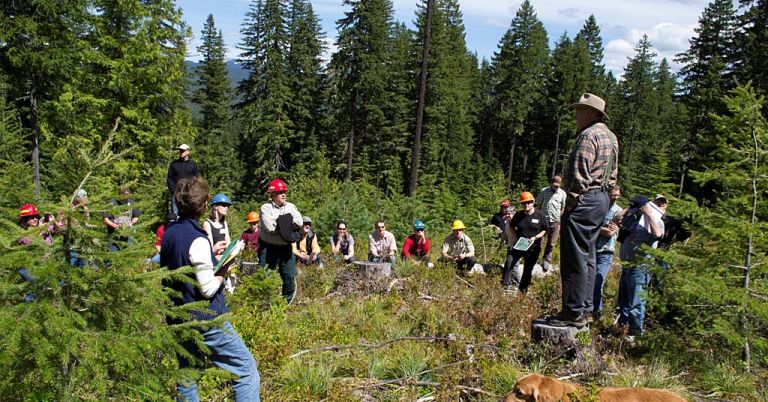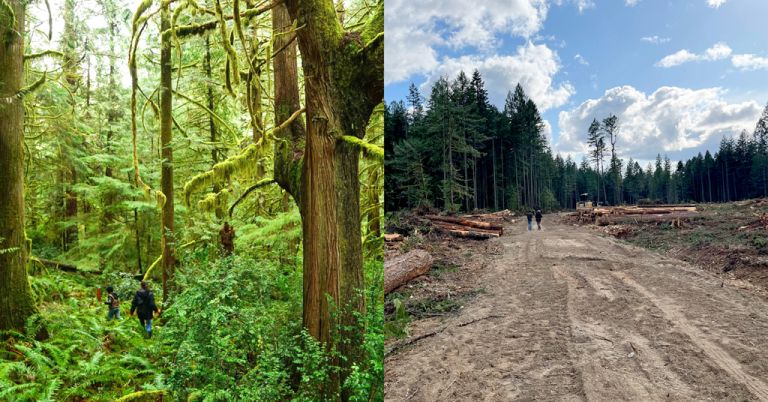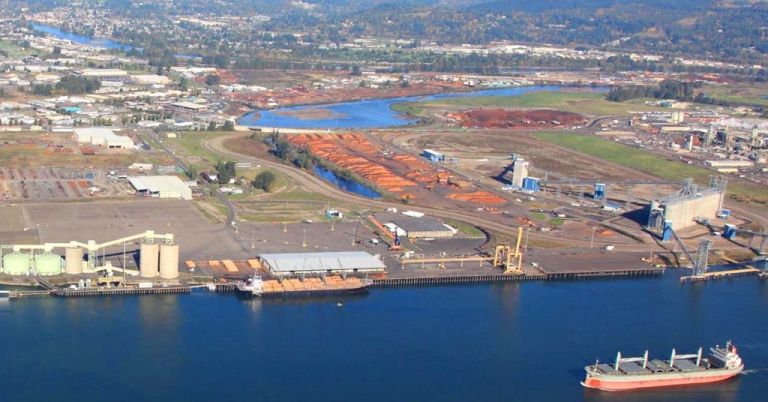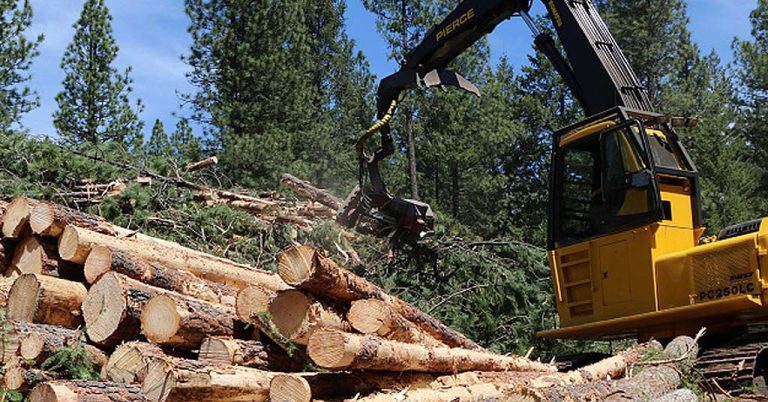A maker of firewood, fenceposts and poles will log an area in northeastern Oregon thought to be beyond salvage. The practice of ‘salvage logging’ remains controversial
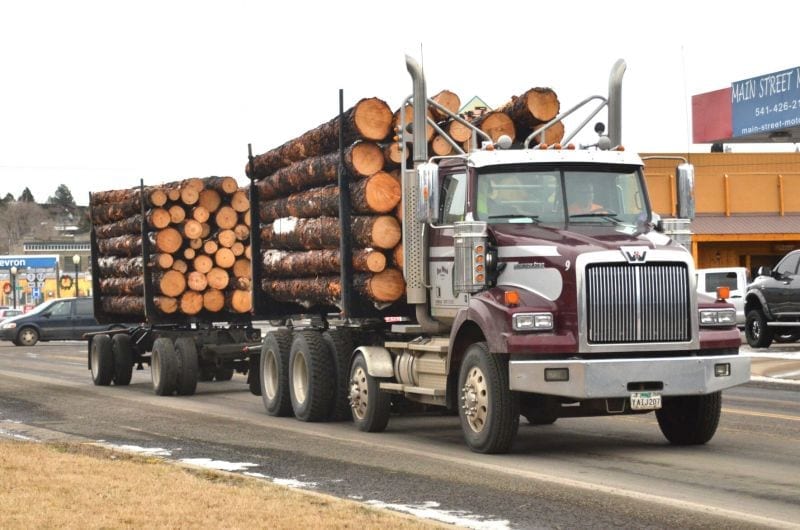
Carrying on: Although logging has ceased for the season, trucks are still hauling timber from the site of the 2015 Grizzly Bear Fire to the Integrated Biomass Resources mill in Wallowa, Oregon. Photo by
By Bill Bradshaw, Wallowa County Chieftain. January 13, 2021. A combined effort of public agencies and private timber companies is in the process of cleaning up the remains of the 2015 Grizzly Bear Complex Fire that burned more than 74,000 acres west of Troy in northeastern Oregon near the Washington border.
Wallowa County commissioners Todd Nash and John Hillock were instrumental in prodding the U.S. Forest Service to sell what it initially considered nearly worthless timber, said David Schmidt of buyer Integrated Biomass Resources (IBR) in Wallowa.
“Commissioners Nash and Hillock invited the Forest Service to see what needs to be done,” Schmidt said. “It’s a good example of everyone working together to make it happen.”
IBR produces firewood, fenceposts and poles at its mill in Wallowa, employing 25 people full time.
“It’s a really positive contributor to keeping 25 full-time jobs going,” Schmidt said.
He also spoke highly of the project as beneficial for the forest environment in northern Wallowa County.
“This is a really cool timber sale in that it was dead wood that was going to be burned,” he said.
Salvage business
The timber sold for $11,264.28, according to Darcy Weseman, public affairs officer for the Umatilla National Forest in Pendleton. She estimated 2.532 million board feet of forest products would come from the sale on the 181 acres designated for treatment.
Schmidt said the dollar amount of the sale was just the stumpage fee paid to the Forest Service, but the full cost of the effort would be between $400,000 and $500,000 by the time the trees were logged, hauled to the mill and processed, and road maintenance costs were incurred.
Weseman said the actual logging is taking place in the Hoodoo Ridge/Cross Canyon area, just west of the Long Meadows Guard Station. An intricate maze of Forest Service roads lead to the area.
Jim Zacharias, of JayZee Lumber Inc., in Joseph, said Pro Thinning, a logging operation run by his sons, Tom and Seth, was contracted to do the actual logging. The company employs a five-man crew in the woods and contracts with six log truckers.
“The trickle-down effect is the jobs created at IBR,” said Zacharias, who also serves on the board of Wallowa Resources, another agency involved in the effort. “It’s great that the Forest Service is being proactive with these things.”
Zacharias said actual logging has halted for the season, but timber is still being hauled to the mill.
Weseman said the job won’t be done overnight. The contract termination date is March 31, 2024, although work may be finished before that date. The timber sale contract allows for additional time if circumstances warrant an extension.
Salvage controversy
The practice of “salvage logging” remains controversial.
“The problem with salvage logging is that its ecological impact is uncertain,” according to a 2015 report in the University of Washington’s Conservation magazine. “The literature is full of contradictory conclusions, and that’s in part because there are so many variables at play, and no landscape is quite the same as another. In addition, it’s hard to disentangle the effects of the post-fire salvage logging from the effects of the fire itself.
“In general, it’s thought that post-fire salvage logging can lead to increased runoff and increased erosion.”
Some proponents claim salvage logging may be beneficial, as it disturbs the soil surface, increasing the soil’s ability to soak up water.
“On the other hand, the heavy machinery itself has a tendency to even further compact the soil,” says Conservation.


